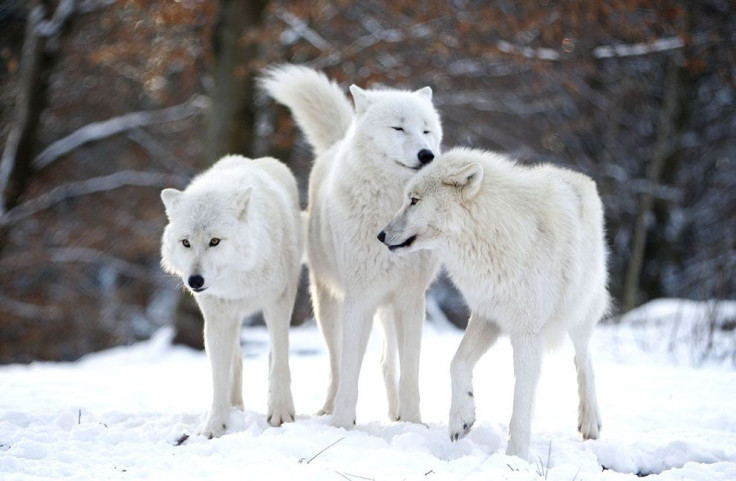Wolves’ Howling Linked To Social Structure, According To New Research Findings

Wolves have long been a source of fascination among humans for their complicated social structures, but new research into their howling may help to unlock some of the nuances in social behavior within packs. A new study conducted by international researchers suggests that wolf howling is more a signifier of high-level emotional bonds between wolves than of emotional stress, as many researchers previously believed.
The study, published in the most recent issue of Current Biology, indicates that wolf calls correlate with social standing and with the intensity of a wolf’s relationship with another wolf. Researchers conducted the study on two different wolf packs housed at Austria’s Wolf Science Center, by separating specific wolves from the rest of the group and taking the other wolves’ cortisol levels to measure their stress levels.
Friederike Range, of Vienna’s University of Veterinary Medicine, said researchers discovered that wolves used their howls to communicate how highly they valued one another. "Our results suggest the social relationship can explain more of the variation we see in howling behavior than the emotional state of the wolf," Range said in a press release. "This suggests that wolves, to a certain extent, may be able to use their vocalizations in a flexible way."
"What exactly their motivation is, we will never know," Range told NBC News. However, she added, "There is an emotional response in there, for sure."
The researchers, Dr. Simon W. Townsend, of the University of Zurich; Francesco Mazzini; and Zsofia Viranyi and Range, conducted these “separation experiments” at 20-minute intervals. They reported that as soon as one wolf was taken away from its pack the others would begin to howl, with more members howling for an alpha wolf. If the separated wolf had a close bond with another pack member, that member would also howl longer for them.
"We didn't know there was some flexibility on how much they howl depending on their relationship. The amount of howling is really defined by the quality of the relationship."
"Wolves seem to howl more when higher-ranking individuals leave because these individuals play quite important roles in the social lives of wolves,” co-author Townsend said. "When they leave, it makes sense that the remaining wolves would want to try and reinitiate or regain contact. The same applies for friendship."
Holly Root-Gutteridge, a Nottingham-based researcher who specializes in wolf howling, told the BBC that the findings were "exciting for wolf scientists."
"The wolves are choosing to howl because a preferred wolf has been removed and they appear to consciously choose to stay in touch with that wolf. That's fascinating because it's really hard to separate social-contact calls from the trigger causing them and also the hormone change the trigger causes,” Root-Gutteridge said. "It means the wolves may be taking complex social interactions into consideration and then changing their own behavior accordingly, not by instinct but by choice.”
© Copyright IBTimes 2024. All rights reserved.





















